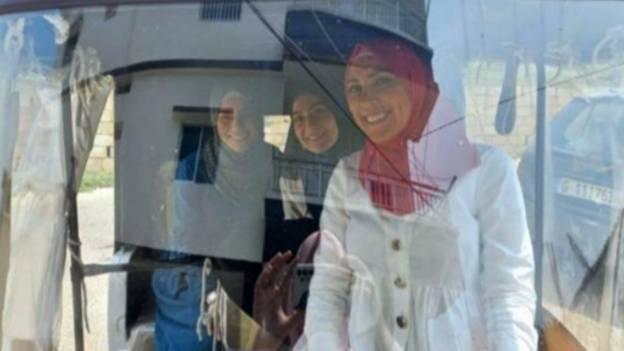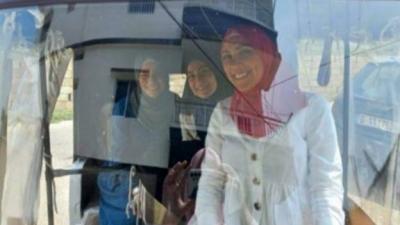The severe economic crisis that Lebanon has been experiencing for years, considered one of the worst in its history, has forced many women to enter the job market despite the lack of opportunities due to high unemployment rates. However, many women have come up with new ideas to secure a living and help their families cover financial expenses, breaking a tradition that was previously uncommon. Sidonian Hala Mohammed Al-Yemen is one of these women, facing life's challenges but deciding not to give up and instead to confront all social and economic difficulties after becoming a divorced single mother responsible for three children. She entered the job market and became a "Tuk Tuk" driver, a rare phenomenon in Sidon and its surrounding areas.
Al-Yemen, 40 years old, lives with her three children: Rafeh (23 years old), who suffers from diabetes and could not complete her vocational education due to financial constraints; Mohammad (21 years old), who studied hospitality for a year and now works as a day laborer on the seaside, carrying tourists on horseback; and Osama (18 years old), who is still pursuing his vocational education, hoping for better days ahead.
Al-Yemen told "Nidaa Al-Watan" that work is neither shameful nor forbidden as long as it is honest and earned by the sweat of one's brow. After her divorce, she found herself without a provider and decided to enter the job market. She worked in a laundry for over two years, but due to the economic crisis, the rising dollar exchange rate, and the spread of the COVID-19 pandemic, she became unemployed. She has a rented home costing two million Lebanese Lira in the Harat Sidon area, along with monthly medication expenses for her daughter Rafeh, who suffers from diabetes, in addition to her children's expenses and food.
She emphasized that the idea of driving a "Tuk Tuk" is new and rare in Sidon, and it was encouraged by her children to reduce transportation costs. She sold her jewelry and bought the "Tuk Tuk" for three thousand US dollars, starting her work at a cheaper rate than taxis to attract passengers, charging twenty thousand Lebanese Lira, which later increased to twenty-five thousand due to rising fuel prices. Importantly, she only transports women, gaining trust from her female passengers and ensuring their safety to their destinations, which are limited to the city and its surroundings.
"Um Mohammad" admits she was surprised by the strong encouragement she received from the city's residents when they saw her driving the "Tuk Tuk" and the praise she received. She believes that work is not shameful and is much better than dependence and asking for help. She vowed not to ask anyone for anything, no matter what, and said she would provide a decent life for her children through her hard work. The economic and living crises are severe, leaving little options for people, especially working women.
In the city, the phenomenon of "Tuk Tuk" driving has not widely spread among men, making her stand out among her peers. She noted that many female passengers have asked to take photos with her and share them on social media for two reasons: first, because the image is rare, and second, to help her in promoting her work. Al-Yemen mentioned that she occasionally takes rides around the city but primarily relies on private requests for transportation to avoid excessive fuel consumption.
She asserts that she is not competing with anyone in her job, stating, "Everyone earns their destined livelihood," and her message to women is not to succumb to the harsh and bitter realities. They should tackle challenges with willpower and determination. She prays that these tough years will be short-lived so life can return to normalcy, expressing gratitude for everything she has.




